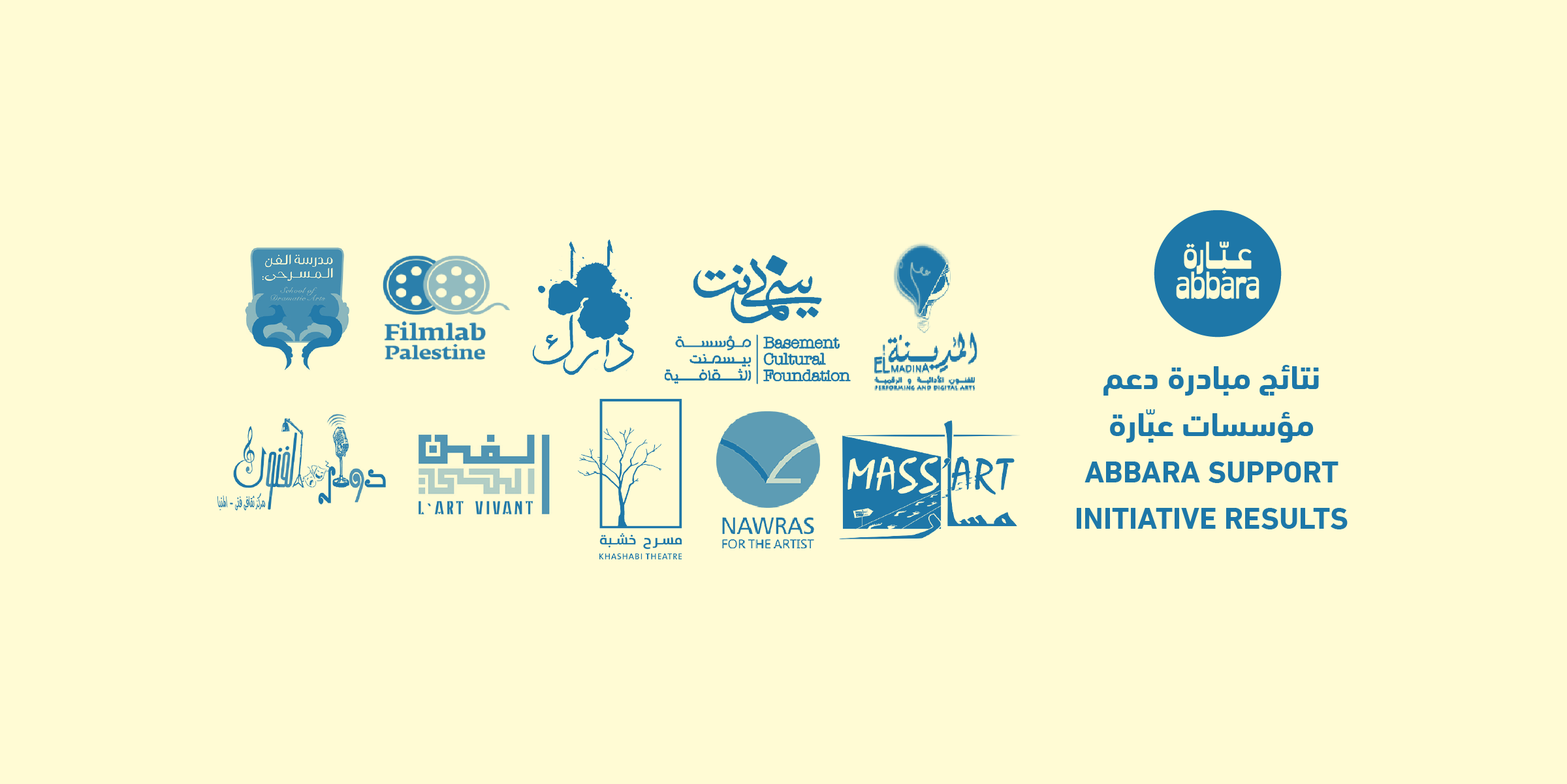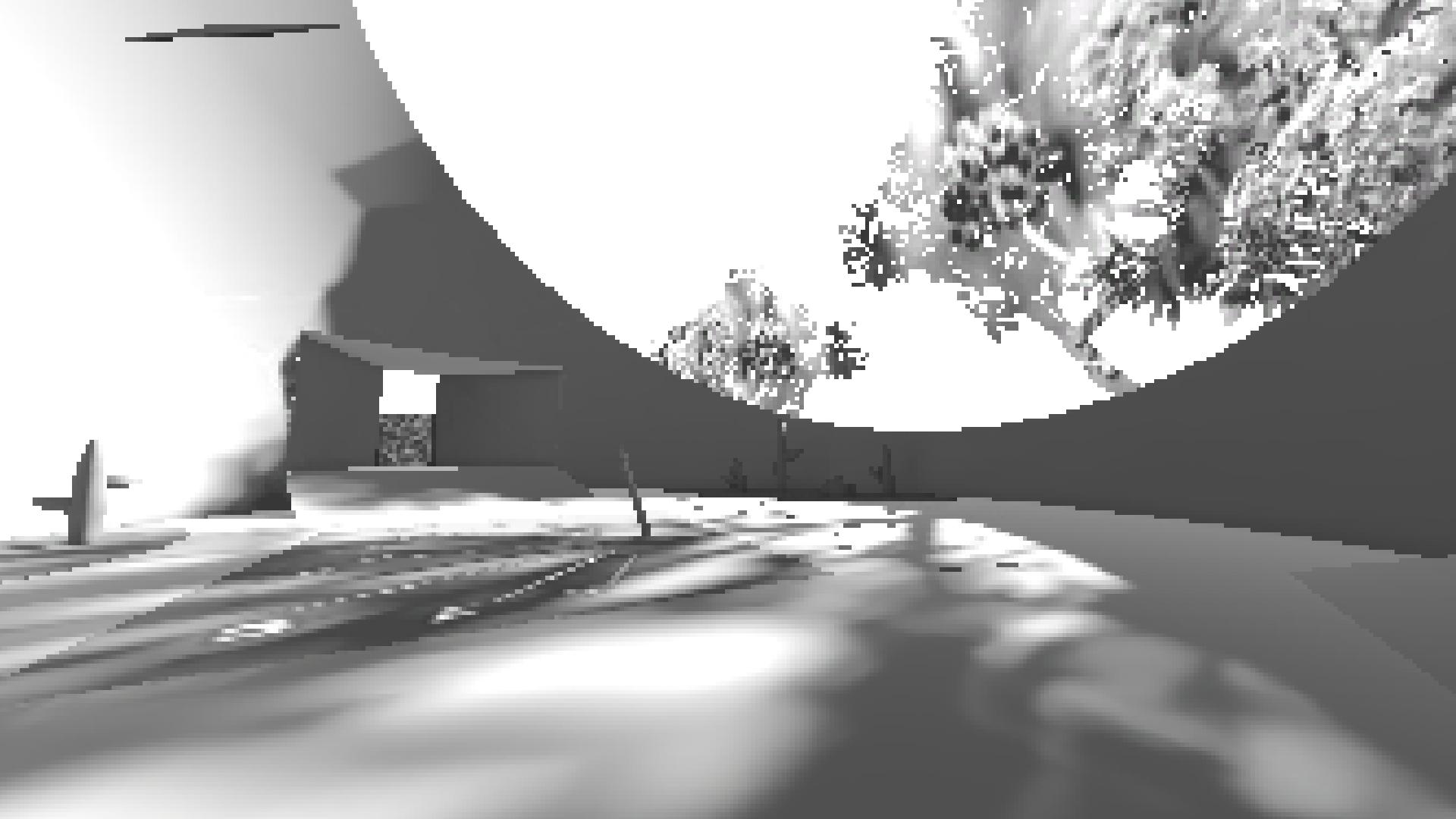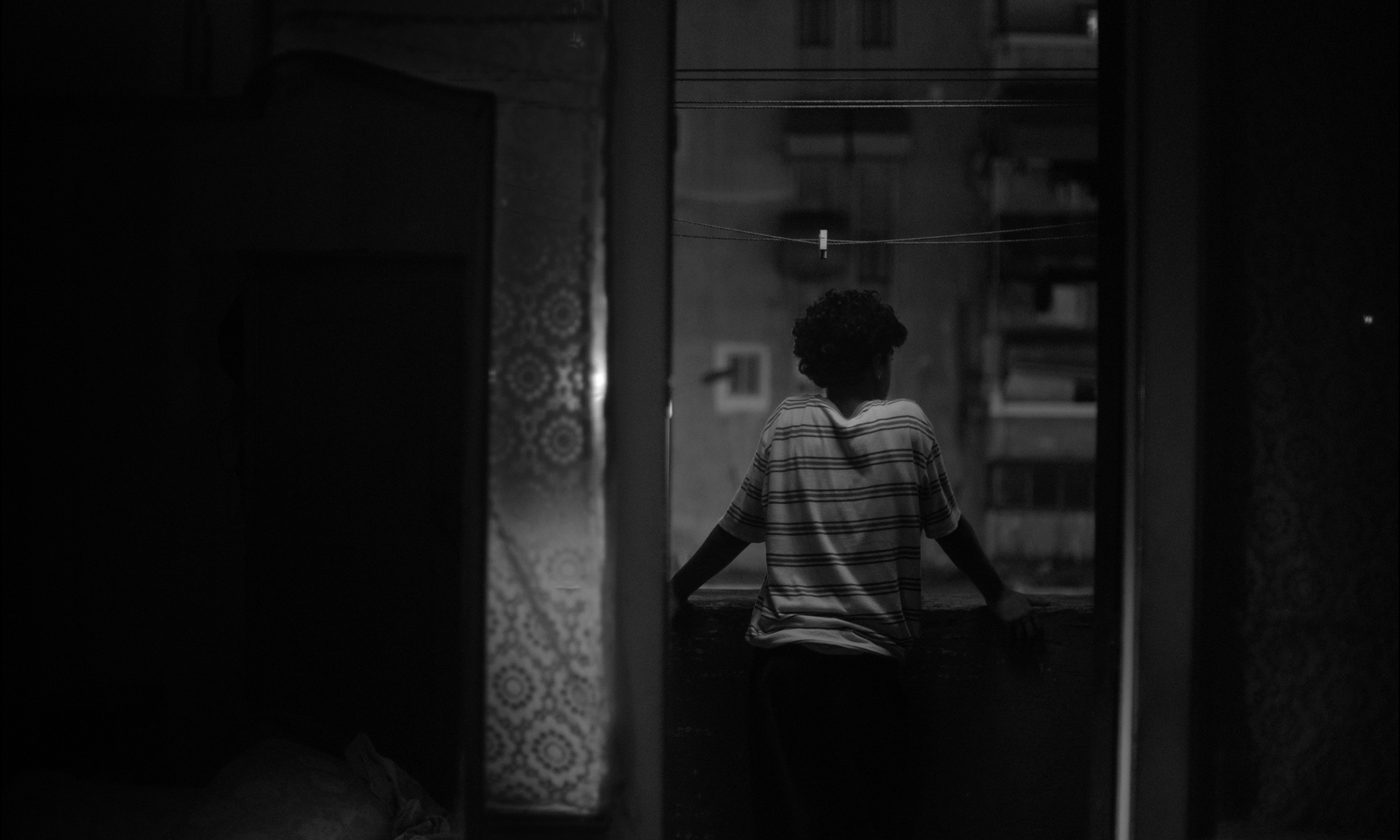Culture Resource is pleased to announce the organizations and groups that have been awarded Abbara Support Initiative grants. This exceptional grant aims to help currently active artistic and cultural organizations that took part in one of the five previous Abbara rounds to contend with the repercussions of the Covid-19 pandemic that struck at a time when most Arab countries were in the throes of political, economic and humanitarian crises that threatened their stability and pitted the entire region before unprecedented challenges.
The Abbara team received 30 applications from Egypt, Palestine, Tunisia, Syria, Morocco, Lebanon, Yemen and Mauritania. After a preliminary screening to eliminate the applications that were incomplete or failed to meet the eligibility criteria, the team forwarded the remaining 23 to a three-member jury.
On 19 August 2020, the jury members met online to discuss their evaluations and finalize selections. At the end of the meeting, the following 10 grantees were designated:
FilmLab Palestine for Cinematic Development / Palestine
Abbara 05
A non-profit organization, founded in Ramallah in 2014, which seeks to enhance cinema culture in Palestine. Towards this end, it aims to furnish an ideal gathering space for filmmakers and to organize activities that stimulate learning, foster exchanges of expertise and mutual inspiration, and spur the production and screening of innovative films.
School of Dramatic Arts / Syria
Abbara 04
An art collective founded in 2009 in Jaramana in the Rif Dimashq Governorate by a group of Syrian thespians. Their purpose was to create a new theatrical space open to diverse experiences and equipped to serve as a laboratory for professional self-development, to train actors and to stage theatrical performances for audiences of all ages.
Basement Cultural Foundation / Yemen
Abbara 04
An independent non-profit cultural organization, founded in Sanaa in 2009, which aims at creating an artistic space where artists can develop their abilities, find support for their productions and have opportunities to present their performances to the Yemeni public. The organization believes in the importance of creating an interactive platform that erases the boundaries between young artists and the public, thereby strengthening bridges of communication with society.
ElMadina for Performing and Digital Arts / Egypt
Abbara 04
A cultural organization, founded in Alexandria in 2000, which works in arts and culture through training, production, the management of culture spaces, supporting artists and young artists’ initiatives. The organization also aims to create a market for artists in Alexandria, a cultural hub on the Mediterranean. Towards this end, it promotes the transformation of public spaces and marginalised areas into spaces for free expression, thereby creating a cohesive sociocultural environment characterised by diversity and plurality.
Khashabi Theatre / Palestine
Abbara 05
An independent cultural organization, founded in Haifa in 2015 by the Khashabi Ensemble, which aims at offering a space where artists can feel free to experiment, create, research and present alternative forms of theater and art. It is also a space for challenging social, political and artistic taboos and for fostering regenerative fertile artistic states through cooperation and mutual support.
Darak for Cultural and Artistic Development / Egypt
Abbara 03
A cultural organization founded in 2012 in Shebin al-Qanater, Qalioubia governorate, by a group of young people involved in culture and the arts. The organization seeks to participate in the development of a democratic civil society that practices and promotes the arts and that believes in the importance of culture and the arts in the life of the individual and society. Towards these ends, it works to build and develop the creative talents of children and youth, to disseminate and present their artistic and literary works, and to foster cooperation between artists and cultural organizations.
NAWRAS / Germany
Abbara 05
A non-profit Syrian organization founded in Berlin in 2017, which seeks to ensure the continuity and development of Syrian art by supporting Syrian artists in Germany. It works to create opportunities for these artists and to facilitate partnerships between them and artists of different nationalities, as well as between them and local, Arab and international artistic organizations. It also aims to ensure a free and safe environment that will help professional artists continue to practice and produce their work independently through a meaningful interaction with their environment.
Mass’Art Arts-Space / Tunisia
Abbara 02
An art space established in 2010 on the basis of an initiative by the actor and theater director Saleh Hammouda and a group of artists and civil society and syndicate activists. The space has attracted large audiences of different age groups in an urban area where several popular neighborhoods intersect by using arts to address various rights issues of concern to people at different phases of their lives.
Dawar El Fnoon / Egypt
Abbara 03
A cultural centre founded in Minia in 2012, Dawar El Fnoon is an attempt to promote the advancement of arts in Upper Egypt where artistic and cultural centres are far and few between. The centre seeks to preserve local artistic heritage and to create arts and culture spaces where artists can experiment, present their creative works, acquire the skills that match their artistic talents, and network with other artists.
L’Art Vivant / Tunisia
Abbara 03
An independent artistic structure founded in El Ghazala-Ariana in 2012, which believes that every person has an inherent right to culture and art. Through its diverse projects, the organization seeks to bring art and artistic creativity to young people in marginalized areas and to empower them with the tools and skills that will enable them to express their concerns in diverse artistic ways. The organization’s activities seek to instil in youth the culture of dialogue, acceptance of others and nonviolent communication while nurturing their self confidence and their sense of belonging as citizens who can have an impact on society through their engagement with others.
Jury Committee
Marie Elias / Palestine, Syria / Professor of French literature, lecturer, founder of Artists.Citizens, member of the Culture Resource general assembly
Moez Mrabet / Tunisia / University professor and researcher, actor, theater director
Mohamed Abotera / Egypt / Program manager for the Danish Egyptian Dialogue Initiative (DEDI)
Note: Moez Mrabet recused himself from evaluating L’Art Vivant application as he is one of its founding members. Its selection was based on the evaluations of the two other jurors.
Jury Statement
“The jury members that Culture Resource selected to evaluate the applications for this grant met on 19 August 2020 to discuss their evaluations and impressions of the applicants. They were pleased to have had this opportunity to contribute, if only in this small way, to supporting Abbara organizations during these exceptional times and they hope that this grant helps the recipients to continue their work and grow. The jurors were impressed by the high standards of most of the applicant organizations and by their outstanding contributions to culture in the Arab region. In their meeting, the jurors discussed the merits of each applicant organization at length using a numerical rating system while simultaneously devoting extensive consideration to qualitative and circumstantial details. The jury observed the following criteria in the evaluation process: the magnitude of the challenges the organizations face, the extent to which these challenges jeopardise their sustainability, the extent to which the challenges relate to the current global conditions as opposed to prior circumstances, the organizations’ ability to identify their problems and priorities, and to conceive realistic solutions. The jury also took into account the organizations’ size and their prospects for obtaining funding from other sources. Priority was given to smaller, more vulnerable organizations. Finally, the jury gave preference to organizations that demonstrated the ability and/or desire to network, cooperate and promote solidarity with others regionally which serves mutual support and interdependence, all of which are consistent with the goals of Culture Resource and the Abbara grant program. The jury tried as much as possible to benefit the largest number of organizations without significantly reducing the amount of support available to individual grantees.”





